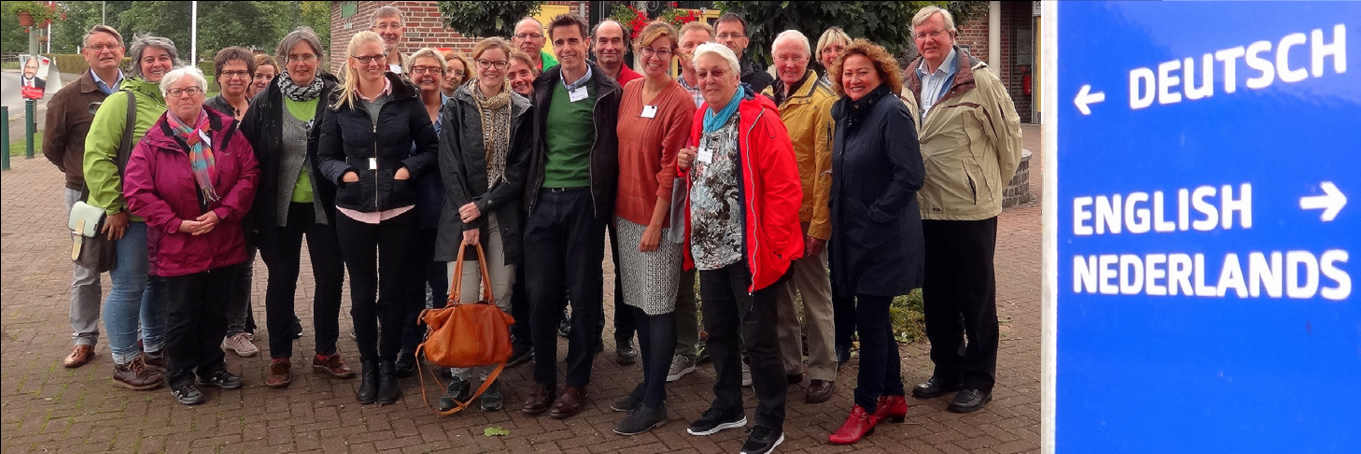New Project "Volunteers 2.0” sets off
The project in which ten German and Dutch cities are going to cooperate in developing tailor-made solutions to improve the quality of life in villages is supported by Euregio Rhine-Waal. It aims at improving communication and flexibility in procedures with citizens’ participation, and creating new networks across borders.
 Meeting of the preceding project "Starke Dörfer" (middle: Prof. Dr. Hegemann, Project Manager, Rhine-Waal University | middle left: Dr. Korrie Melis, cooperation partner, HAN)
Meeting of the preceding project "Starke Dörfer" (middle: Prof. Dr. Hegemann, Project Manager, Rhine-Waal University | middle left: Dr. Korrie Melis, cooperation partner, HAN)
Demographic change and globalisation are causing increasingly high costs for public and private providers of services and everyday needs. As a result, lively village or town centres are dying out - with serious consequences for the local population.
„At this stage it is important to strengthen and expand the opportunities and potential of voluntary work by talking directly to the administrations and committed citizens", says Project Manager, Prof. Dr. Klaus Hegemann (Rhine-Waal University of Applied Sciences).
Experience from other citizens' projects has shown that ideas can be implemented very successfully if they are discussed and clearly communicated with all those involved right from the start. "People want to get involved on a voluntary basis, and solidarity grows with every successful implementation," adds Prof. Dr. Hegemann.
Through their voluntary commitment, volunteers strengthen the quality of life in their own region and show solidarity, regardless of whether they are engaged in rural or urban areas.
Especially in times of pandemic, voluntary commitment, for example in form of social support or neighbourhood assistance, is of major importance. Improved framework conditions for the cooperative participation of all those involved can foster charitable initiatives.
For a period of two years, the Euregio Rhine-Waal is going to support the German-Dutch regional development with funds from the EU, the State of North Rhine-Westphalia and the Provincie Gelderland. The "Volunteers 2.0" project (2020-2022) will now build on the experience gained in prior projects ("Smart Villages" (2012 - 2016), "Krachtige Kernen / Starke Dörfer" (KRAKE, 2016-2019) and the FH structure funding competition) to adapt the framework conditions.
Due to the current restrictions in public life, the two universities involved - HAN (NL: Arnhem and Nijmegen) and HSRW (G: Kleve and Kamp-Lintfort), will first initiate discussions with partner communities and neighbourhoods to determine their current needs. Based on these findings, a large kick-off conference is to be held at the beginning of September – followed by international meetings to elaborate specific questions and to develop valuable cross-border networks.
Funding body
The Volunteers 2.0 project is co-financed within the framework of the INTERREG V A programme Germany-Nederland with funds from the European Regional Development Fund (ERDF), the Ministry of Economic Affairs, Innovation, Digitisation and Energy of the State of North Rhine-Westphalia (MWEIMH NRW) and the Province of Gelderland.

